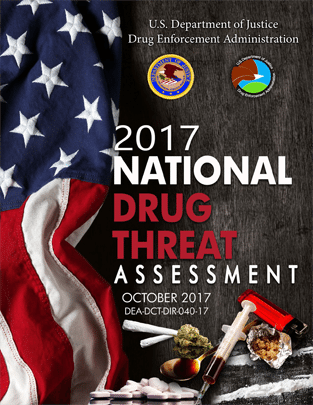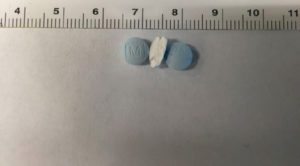DEA Warns that More Types of Counterfeit Prescription Drugs Made with Fentanyl are On the Horizon
 In their just-released 2017 Drug Threat Assessment, the Drug Enforcement Administration (DEA) has sounded the alarm about the role counterfeit prescription pills are playing an increasingly dangerous role in national opioid deaths.
In their just-released 2017 Drug Threat Assessment, the Drug Enforcement Administration (DEA) has sounded the alarm about the role counterfeit prescription pills are playing an increasingly dangerous role in national opioid deaths.
The report notes that:
“Illicitly-produced fentanyl is increasingly available in the form of counterfeit prescription pills. Fentanyl traffickers use fentanyl powder and pill presses to produce pills that resemble popular prescription opioids, such as oxycodone and hydrocodone (see below). The pills are sold in illicit U.S. drug markets, and users typically do not realize the pills are laced with fentanyl. In many cases, the colorings, markings, and shape of the counterfeit pills were consistent with authentic prescription medications. The presence of fentanyl may only be determined during laboratory analysis.”

Counterfeit Oxycodone Tablets Containing Fentanyl. Source: DEA
The report also makes the point that the expansion of the counterfeit pill market to include fake medications made with fentanyl could end up undoing efforts to remove access to opioid medications from illicit markets. It states, “The arrival of large amounts of counterfeit prescription drugs containing fentanyl on the market replaces opioid medications taken off of the street. Although a very small percentage of controlled prescription drug users eventually switch to heroin, fentanyl-laced pills give DTOs (Drug Trafficking Organizations) broader access to the large controlled prescription drug user population, which is reliant upon diversion of legitimate pills.”
The DEA expects that since drug traffickers are experiencing financial success by creating fake prescription pills made with fentanyl, fentanyl will begin appearing as the primary component in an even greater variety of counterfeit prescription drugs.
The concerns cited above are why the National Association of Drug Diversion Investigators (NADDI) has come out in opposition to proposed drug importation legislation. In newspapers ads placed in the Washington area over the summer, they told Washington legislators, “[law enforcement’s] job becomes much harder if Congress passes laws allowing the importation of medications.”